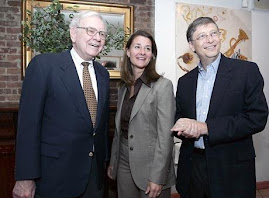On 15 Oct 2007, PSC Corp’s shares consolidated five into one and
 traded at an open price of $0.52. This is close to what I had calculated in my previous posting on PSC. Unfortunately, PSC share closed at $0.48 which is lower than the theoretical price after the consolidation and rights issue. Of course, one day’s trading is not conclusive. It will probably take a few weeks to know whether PSC’s share price can maintain or surge above (and maintain) the theoretical price after share consolidation. Otherwise long-term investors will be worst of. They would be better of by disposing the shares before the consolidation. In this case, history has predictably repeated.
traded at an open price of $0.52. This is close to what I had calculated in my previous posting on PSC. Unfortunately, PSC share closed at $0.48 which is lower than the theoretical price after the consolidation and rights issue. Of course, one day’s trading is not conclusive. It will probably take a few weeks to know whether PSC’s share price can maintain or surge above (and maintain) the theoretical price after share consolidation. Otherwise long-term investors will be worst of. They would be better of by disposing the shares before the consolidation. In this case, history has predictably repeated.Whatever the ultimate outcome, my opinion is still the same. Share consolidation, generally, do not add value to the shareholders. It is a waste of time and the management, if indeed capable, should divert all efforts in bringing in profits.
Tips On IPO Application
In a bullish market like now, IPO is one idiot-proof way to make money. Many people rush into it and good IPOs are always numerous times over subscribed. Here I like to share a little tips on IPO application. It’s nothing big deal but for a beginner and a retail investor, this should be useful. If you are rich enough to apply for 100 of thousands of shares, this article will be irrelevant to you. So here are the tips:
1) When applying for IPO, always apply one lot (1,000 shares) or 11 lots (11,000 shares). Never in between.
2) Always apply near the end of the closing date. Never be the first hero.
Based on my ten years of experience, in a normal market, most IPO will usually be a few times oversubscribed. Normal market here refers to anytime other than a crisis or recession. When it is many times oversubscribed, every applicant will not receive the full quantity he/she applied for.
.JPG)
Refers to the picture above which is one of the recent IPO balloting result. Generally, those who applied from 1 to 9 or 10 lots will be thrown into the same balloting box. Let’s call this as Cat A. So it doesn’t matter whether you apply for 1 lot or 9 lots. You get same balloting ratio, same allotment, same probability. What you should do is to apply for eleven lots so that you can “jump category”. The next category will be for those applying, say, eleven lots to thirty, forty or fifty lots. So again, if you are slightly rich, it doesn’t matter if you apply for eleven lots or thirty lots - same balloting ratio, same allotment, same probability. Then you might as well apply for eleven lots.
The benefit of jumping category (let’s call the next higher category as Cat B) is that you are likely to enjoy one or two things. Firstly, the balloting ratio may change. For example, in Cat A, 5 out 50 applicants will get it, and Cat B 10 out of 50, depending on how hot is the IPO. So in Cat B, your chance increases. It’s not much but at least something. The second likely benefit will be the number of shares allotted may be different. In Cat A, successful applicants usually get one lot. In Cat B, successful applicants may get two lots. Again, this depends on how hot is the IPO.
Next, never rush to the ATM (or send your application form) immediately after the IPO is open for application. The market sentiment may change anytime. Mr. Market is temperamental, remember? If you apply the IPO early and suddenly Dow Jones plunged, there is no chance to retract. And then many people may change their mind about the application (to play safe), and you had it. You may be fully allotted. I usually applied an IPO during the last day.
“But between the IPO closing date and the official listing date, there may be bad news also?”
Yes that’s right but everyone had applied for it. And as usual, you won’t be fully allotted. You may get one or two lots but it’s not that bad. In any case, usually, an IPO will be listed within two or three days (some may be more) after the close of its application.
So in conclusion, IPO application is a probability game. I am sure many people can afford to apply eleven lots and thus giving yourself a better chance of getting it and getting more. Alternatively, if the IPO is underwrite by the broking house you used, call your broker/remisier and pressure him/her for private placement.



